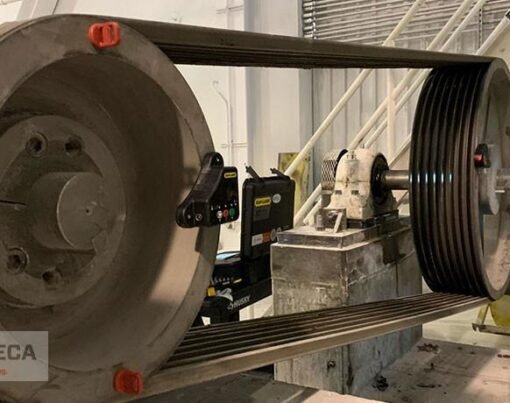In the production of aerospace products, quality control is essential to guarantee the performance, safety, and dependability of each aircraft and component. ERP systems are becoming necessary instruments for managing quality in the aerospace sector, where there is a growing demand for accuracy and productivity. ERP systems aid in the prevention of errors and enhance overall product perfection by incorporating quality control procedures into every level of production. We will look at how ERP systems help the aerospace production process and improve quality control in this article.
Table of Contents
KPIs and Quality Metrics:
Sustaining high standards in aircraft manufacturing necessitates the monitoring of quality measurements and Key Performance Indicators (KPIs). Systems known as Aerospace ERP make it possible to monitor a variety of quality measures, including Statistical Process Control (SPC) and Statistical Quality Control (SQC), which are useful for assessing and evaluating the effectiveness of manufacturing processes. SPC employs data to monitor and manage operations to make sure they stay within predetermined bounds, whereas SQC is more concerned with utilizing statistical techniques to assess product quality. Manufacturers may spot patterns, see possible problems early, and make wise decisions to enhance process effectiveness and product quality by routinely analyzing key data and KPIs.
Essentials of Quality Management:
ERP systems aid in managing nonconformant records by ensuring any problems are noted and resolved. They make it easier for first-article inspections to take place, ensuring that the first samples fulfill the requirements before full production starts. ERP systems also track and record any materials that do not satisfy quality standards, which helps them address material rejections. This all-encompassing strategy guarantees that quality standards are followed throughout the manufacturing process.
Standardized Procedures for Workflows
ERP systems create consistent processes across many operations and automate repetitive chores. Results are more dependable and predictable due to this standardization, which lowers the chance of errors and deviations. All team members complete tasks in the same manner according to established workflows, which supports the maintenance of efficiency and quality. Standardized workflows also make it easier to satisfy quality standards and adjust to changes in production requirements by streamlining new hire training and streamlining process management.
Total Command Over Inspections:
Maintaining strict quality control in production requires total control over inspections. ERP systems make it possible to control the inspection process in great detail, especially by defining unique qualities and producing personalized inspection schedules. This control makes sure that inspections are comprehensive and customized to fit the unique needs of every product or item. Manufacturers can detect flaws and confirm standard compliance more efficiently by establishing explicit inspection criteria and procedures. This degree of supervision promotes the creation of high-quality products and keeps problems from getting worse.
Complete Traceability:
For the purpose of tracing products and materials through the manufacturing process, end-to-end traceability is essential. ERP systems give producers a comprehensive picture that lets them keep an eye on every stage, from the initial delivery of materials to the finished product. Additionally, it facilitates speedier audits and aids in upholding industry standards compliance. Manufacturers may guarantee better supplier management by keeping thorough records of every step.
Reports on Discrepant Materials (DMR):
Discrepant Material Reports (DMR), a type of report that tracks materials that fail inspections, are handled by ERP systems. With the use of these reports, parts that don’t match quality standards can be systematically reviewed, and decisions can be made. Material review boards can assess nonconforming parts and decide what needs to be done about them with the use of the information in DMRs. The method helps guarantee that damaged materials are appropriately managed, lowering the possibility of compromised product quality by giving a detailed record of any disparities.
Conclusion:
ERP solutions are essential for overseeing quality control at every stage of the manufacturing process. These tools support you in upholding stringent quality standards by giving you access to real-time data, standardizing workflows, and monitoring each step of the manufacturing process. They also make it easier to comply with industry requirements and promote the effective handling of nonconforming products. You may decrease errors, improve product dependability, and optimize processes by using these technologies. Adopting ERP technologies for quality control enhances your manufacturing procedures and fortifies your position in the cutthroat aerospace sector.










